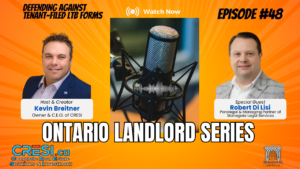Why smart landlords in Toronto, Ottawa, and across Ontario keep losing thousands on simple paperwork errors
Picture this: You’re a landlord in Ontario. You think you know the rules. Then one day, your tenant stops paying rent. They say they don’t have to pay. Why? You made a simple mistake on their lease.
This happens all the time. Even good landlords and real estate agents make Ontario Standard Lease mistakes that cost thousands of dollars.
The 21-Day Rule That Shocks Most Ontario Landlords
Here’s something that might surprise you. If you don’t give your tenant their lease within 21 days, they can keep one month’s rent. Yes, you read that right. They can legally keep their money because you were late with paperwork.
Many landlords in cities like Hamilton, London, and Kingston learned this the hard way. Don’t let it happen to you.
Why Your Old Lease Forms Don’t Work Now
Before 2018, landlords used Form 400. But here’s the thing – Form 400 isn’t a lease now. It’s just a promise to make a lease.
Think of it like this: Form 400 is like saying you’ll bake a cake. The Ontario Standard Lease is the real cake. You need both, but only one feeds people.
The government made this change to help tenants. Every lease in Ontario now looks the same. This makes it fair for everyone.
The Biggest Money Mistake: Getting Utilities Wrong
Want to know the top Ontario Standard Lease mistake that hurts landlords? It’s the utilities part.
Here’s what happens: Landlords write that utilities aren’t included in rent. But then they check the wrong box on the lease form. The box says utilities ARE included.
Once that lease is signed, guess what? You pay for heat, power, and water. Even if you never meant to.
This mistake has cost Ontario landlords thousands of dollars. Always double-check that utilities part.
The Key Deposit Trap
How much should you charge for a key deposit? If you said $100, $200, or even $50, you’re wrong.
For a regular house key, the legal amount is usually under $10. That’s it. For a condo with special keys, it might be $50 to $75. But some landlords charge $300 or $500 for key deposits.
Here’s the problem: Tenants can report you for taking illegal deposits. Then you pay it all back AND face fines.
Why Your Tenant’s Boyfriend Can Move In
This one surprises many Ontario landlords. Let’s say you rent to Sarah. After a few months, her boyfriend Mike starts staying over every night. Then he moves in for good.
Can you kick out Mike? Nope. Can you charge extra rent for Mike? Nope.
Under Ontario law, tenants can have guests and roommates. There’s no limit on how long guests can stay. The only rule is they can’t break city laws about how many people live in one place.
The Tenant Insurance Myth
Many landlords think tenants MUST have insurance. They write it right into the lease. But here’s the truth: tenant insurance isn’t required by Ontario law.
You can ask for it. You can even make it part of your lease. But if they cancel their insurance later, there’s nothing you can do.
The good news? If you have a mortgage, you already have liability insurance. You’re covered even if your tenant isn’t.
When Leases Turn Into Forever Deals
Here’s something that shocks new landlords: All leases in Ontario always become month-to-month after the first term ends.
You can’t write “This lease ends on December 31st” and expect it to work. Your tenant has something called “security of tenure.” That means they can stay as long as they want and keep paying rent.
There are only three ways to end a tenancy in Ontario:
- The tenant gives you 60 days notice
- You both agree to end it
- A court orders the tenant to leave
The Guarantor Mix-Up That Fails
Many landlords ask for guarantors. That’s someone who promises to pay if the tenant doesn’t. But most guarantor deals only last one year. After that, the guarantor is free.
Even if you can go after a guarantor for money, you still have to go to court first. Then you have to actually collect the money. It’s not as easy as calling them and asking for payment.
A smarter move? Make the guarantor the real tenant. Put the parent’s name on the lease. List the student as someone who lives there. This works great for student rentals.
Red Flags in Your Lease Add-On
You can add anything you want to your Ontario Standard Lease. But if it goes against Ontario rental law, it won’t work in court.
Common illegal rules include:
- Charging for repairs
- Making tenants pay damage deposits
- Saying the lease ends after the first year
- Making tenants use certain repair companies
You can write these things down. But they’re worthless if you need to use them.
How to Avoid These Ontario Standard Lease Mistakes
The best way to avoid Ontario Standard Lease mistakes is to take your time. Don’t rush the paperwork. If you work with a real estate agent, make sure the listing agent handles the lease paperwork, not the buyer’s agent.
Remember these key points:
- Give tenants their lease within 21 days
- Double-check the utilities part
- Only charge real costs for key deposits
- Know that tenants can have guests and roommates
- Understand that leases go month-to-month always
- Don’t count too much on guarantor deals
Get Expert Help for Your Ontario Rental Property
Making Ontario Standard Lease mistakes can cost you thousands of dollars and months of trouble. When you’re not sure about something, it’s worth getting help from experts who know Ontario rental laws really well.
Whether you manage properties in Toronto, Ottawa, or smaller Ontario cities, having the right legal help makes all the difference. Don’t let simple paperwork mistakes turn your money-making rental into a costly problem.
Want to hear more insider tips from Ontario legal experts? Check out the full podcast episode where we dive deeper into each of these lease mistakes and how to avoid them.
Related: Stress-free tools for landlords



